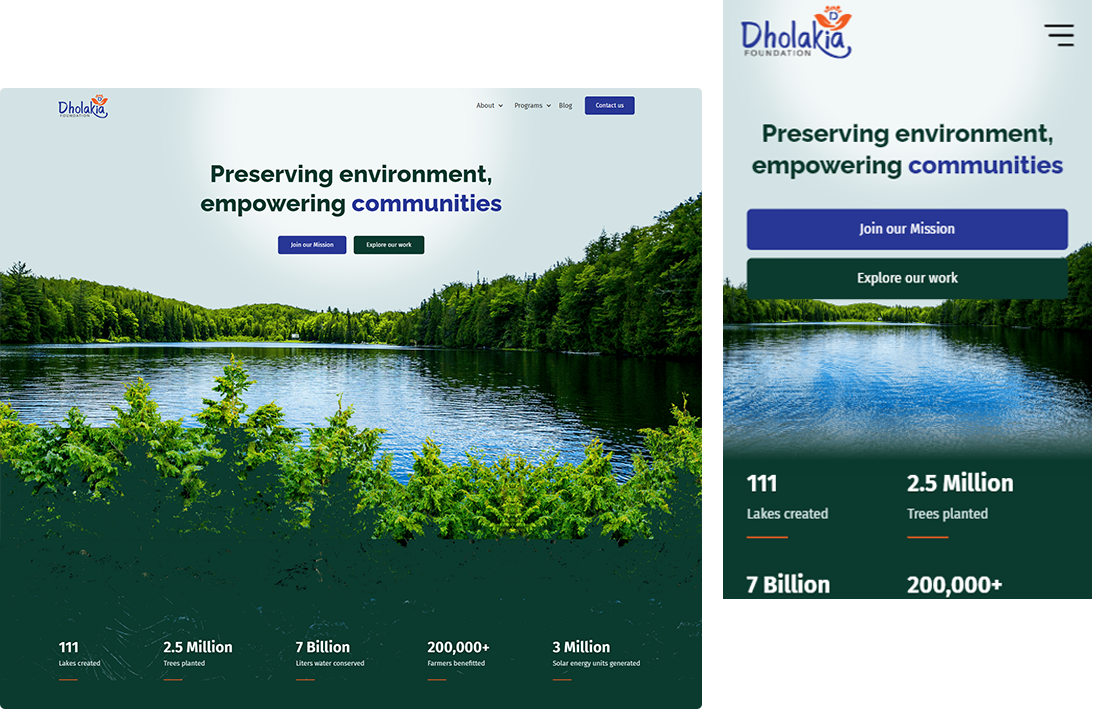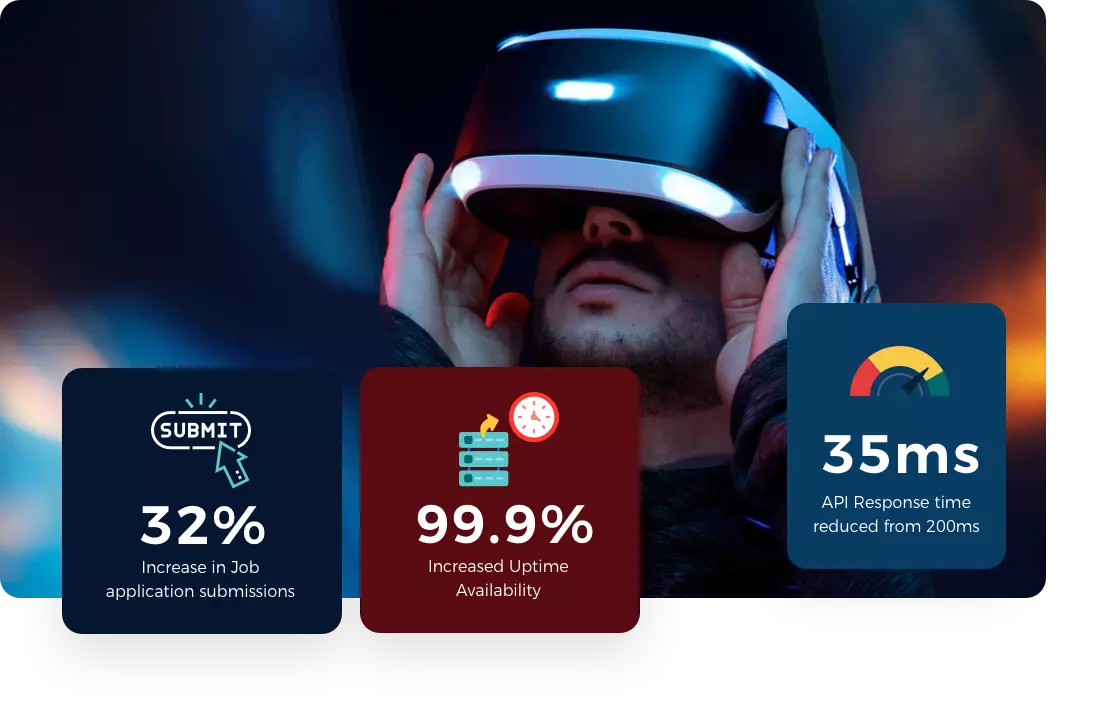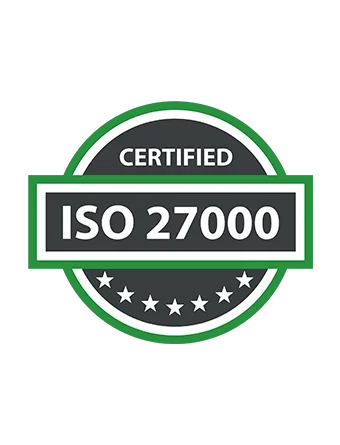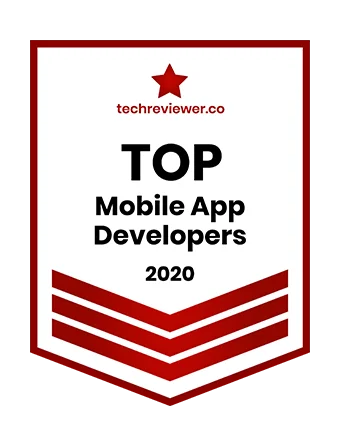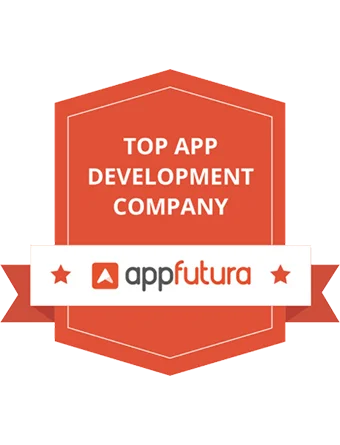A content management system (CMS) is a web-based application that enables multiple users to manage different parts of a website with varying permission levels. It allows the editing of website content, data, and applications.
There are several CMS (Content Management System) platforms available, each with its own features and functionalities. WordPress, Joomla, Shopify, Wix, Webflow, and Strapi are some popular CMS platforms.
VOCSO serves various industries including healthcare, real estate, eCommerce, finance, logistics, education, transportation, entertainment, food, tourism, construction, retail, and more.
Consider CMS development services if you need to enhance website functionality, manage content more effectively, or switch from a hosted to a self-hosted platform. VOCSO can help you overcome limitations, support redesigns, and optimize CMS performance.
A custom CMS development company is a company that specializes in creating tailored Content Management System (CMS) solutions to meet the unique needs of businesses and organizations. These companies have expertise in developing CMS platforms from scratch or customizing existing CMS platforms to suit specific requirements. By customizing or developing a CMS from scratch, these companies enable businesses to have a robust and scalable platform that aligns precisely with their unique requirements.
The time required to build CMS software depends on the project's complexity and scope. It can range from several months to over a year.
Different types of CMS software include web content management systems (WCMS), digital asset management systems (DAM), document management systems (DMS), and learning management systems (LMS). VOCSO can provide CMS solutions tailored to these specific needs.
A CMS (Content Management System) is essential for efficiently managing and organizing your website's content. With a CMS, you gain control over content creation, editing, and publishing, allowing you to easily update your website without relying on technical expertise. It simplifies the content workflow, enhances collaboration among team members, and ensures consistency in design and branding. Moreover, a CMS empowers you to scale your website, add new features, and adapt to changing business needs effectively.
Whether you need a custom CMS depends on your specific requirements. Off-the-shelf CMS platforms like WordPress or Webflow can be suitable for many businesses, offering a range of features and flexibility. However, if your content management needs are highly specialized or unique, a custom CMS can provide distinct advantages. It allows you to tailor the CMS precisely to your workflows, content types, and business processes, providing a more streamlined and efficient solution that aligns perfectly with your needs.
CMS platforms find applications in various industries and scenarios. Some common use cases of CMS include:
Web Portal: CMS platforms are commonly used to build web portals that serve as gateways to various resources and information. Web portals often require dynamic content management, user authentication, and personalized experiences for users.
Directory Websites: CMS platforms are well-suited for directory websites that organize and present a large volume of categorized listings. CMS solutions can enable easy management of listings, search functionality, and user submissions.
Membership Portal: CMS platforms can power membership portals that provide exclusive content, member directories, forums, and collaboration tools. CMS solutions facilitate user management, access control, and content delivery for members.
Mobile Apps: CMS platforms, particularly headless CMS options, are utilized to manage and deliver content to mobile apps. CMS solutions enable content updates, localization, and integration with mobile app frameworks via APIs.
Content Driven Websites: CMS platforms are extensively used for content-driven websites, including blogs, news portals, and online magazines. CMS solutions simplify content creation, publishing, and categorization, along with enabling social sharing and SEO optimization.
Portfolio & Showcase Websites: CMS platforms allow creative professionals and businesses to showcase their work through visually appealing portfolio websites. CMS solutions enable easy uploading and management of images, videos, and project descriptions.
Event Websites: CMS platforms can facilitate the creation of event websites, providing features such as event listings, ticketing, registration, and schedule management. CMS solutions enable event organizers to update and promote event details efficiently.
Multilingual Websites: CMS platforms with multilingual support are ideal for creating websites that cater to a global audience. Such CMS solutions enable easy translation and management of content in multiple languages.
Custom Web Applications: CMS platforms can serve as a foundation for developing custom web applications. CMS solutions provide a framework for managing dynamic content, user interactions, and custom functionality tailored to specific business needs.Choosing the right CMS platform depends on your specific needs and requirements. Consider the following factors:
Ease of Use: Look for a CMS with an intuitive user interface and content management workflow that matches your team's skills and capabilities.
Scalability: Ensure the CMS can handle your website's current and future growth, accommodating increased traffic, content volume, and functionality.
Flexibility and Customization: Assess whether the CMS allows customization options, extensions, and integrations to align with your unique requirements.
Support and Community: Research the availability of technical support, documentation, and an active community of users and developers for assistance and updates.
Security: Prioritize CMS platforms with robust security features and a track record of addressing vulnerabilities promptly.
Budget: Consider the total cost of ownership, including licensing fees, development costs, hosting, and maintenance, to find a CMS that fits within your budget.
For corporate websites, CMS platforms that offer flexibility, scalability, and enterprise-level features are recommended. Some popular options include:
WordPress: Known for its user-friendly interface and extensive plugin ecosystem, WordPress is widely used for corporate websites of all sizes.
Drupal: Drupal offers robust functionality, scalability, and advanced customization options, making it suitable for large and complex corporate websites.
Sitecore: Sitecore is an enterprise-level CMS that provides personalized customer experiences, content management, and marketing automation features.
When it comes to CMS options for mobile apps, headless CMS platforms are often preferred. They provide content APIs that can be consumed by mobile applications seamlessly. Some popular choices include:
Contentful: Contentful is a headless CMS with a developer-friendly interface, offering APIs and SDKs for building mobile apps with dynamic content display.
Strapi: Strapi is an open-source headless CMS that offers a user-friendly interface and API-driven architecture, making it suitable for mobile app development.
Firebase: Firebase is a backend platform that provides real-time database and hosting services. It can be integrated with mobile apps to manage content and user authentication.
Prismic: Prismic is a headless CMS designed specifically for delivering content to mobile and web applications. It offers a RESTful API and SDKs for various programming languages.
Contentstack: Contentstack is a headless CMS with a focus on delivering content through APIs. It provides a mobile SDK that simplifies content management for mobile app developers.
For directory websites, CMS platforms that offer robust categorization, search functionality, and listing management capabilities are ideal. Some suitable options include:
WordPress with Directory Plugins: WordPress can be enhanced with directory plugins like GeoDirectory or Business Directory Plugin to create comprehensive directory websites.
Joomla with SobiPro: Joomla combined with the SobiPro extension provides a powerful solution for building and managing directory websites.
Drupal with Web Directory Module: Drupal offers modules like Web Directory that enable the creation of sophisticated directory websites with customizable features.
Brilliant Directories: Brilliant Directories is a CMS platform specifically designed for directory websites, offering a range of built-in features for listings, categorization, and search.
The speed of a CMS can depend on various factors, including server configuration, caching mechanisms, and the efficiency of the underlying code. However, some CMS platforms are known for their performance optimization capabilities. Here are a few CMS options that are recognized for their speed:
Statamic: Statamic is a flat-file CMS that eliminates the need for a database, resulting in faster loading times and reduced server overhead.
Grav: Grav is another flat-file CMS built on modern web technologies, providing excellent performance and fast page loading due to its file-based approach.
October CMS: October CMS is a lightweight and efficient CMS that utilizes Laravel PHP framework, known for its performance optimization features.
Craft CMS: Craft CMS is designed with performance in mind, employing caching mechanisms and a modular architecture to deliver fast response times.
Yes, as a custom CMS development company, we have experience in building CMS solutions from scratch tailored to our clients' specific needs. Developing a custom CMS involves understanding your unique requirements, designing a database structure, implementing backend functionality, creating an intuitive user interface, and integrating desired features. Our team of experienced developers can work closely with you to deliver a custom CMS solution that aligns perfectly with your content management goals and business processes.
At VOCSO, we specialize in custom CMS development and can provide personalized solutions to meet your specific needs.








